Disability Access Service (DAS) Changes at Disney World FAQ
We’ve received over 200 questions about the overhaul of Disability Access Service (DAS) at Walt Disney World and Disneyland that will roll out in the next couple of months. This FAQ answers common inquiries about eligibility changes, mechanics of how DAS will (and won’t) work, reasons for new policies, how they should cut down on Lightning Lane abuse and misuse, and much more.
This comes as a follow-up to the long-awaited news that Disney is once again redoing DAS at Walt Disney World and Disneyland due in large part to abuse and proliferation of the program’s use. That article covers a lot of ground about the specifics of the new-look Disability Access Service, plus our commentary about winners & losers, as well as collateral damage and more.
Unfortunately, that article is also nearly 4,500 words long. Brevity is hardly this site’s strong suit, so a lengthy post is fairly unsurprising. Except in this case, I had another 1,500+ words that were lost left on the chopping block–and I could’ve dedicated another 2,000 words to answering reader questions. Instead, I thought I’d put together an FAQ that would attempt to be as concise as possible–and also be easier to navigate so you can skim and bypass questions that don’t apply to you.
This combines public information that Walt Disney World has released, questions we’ve been able to get answered during discussions with Disney’s team working on the DAS overhaul, informed speculation based on reading between the lines of the policies, practical realities of ADA compliance, and more.
This is still going to be a long one, so let’s dig right into the FAQ…
How do you register for DAS?
Registration is available via live video chat.
Speak with a Cast Member via live video chat to determine eligibility no more than 30 days in advance of a park visit.
Is in-person same-day registration available at Walt Disney World?
No and yes. Same day registration is still available by visiting Guest Relations, but it will not be in-person in the sense that you’ll be speaking face-to-face with a Cast Member inside the park. You’ll be directed to a location and given a device to conduct the live video chat. It’ll work exactly like it would from outside the park, except you’ll be wasting precious vacation time to do so.
Given that alone–and the possibility of this taking extra time based on demand–we highly recommend going the pre-arrival route at Walt Disney World. Nothing is going to change, outcome-wise, with getting or not getting DAS. It’s just where you take the time to go through the process.
Guests visiting now through May 19 may visit a theme park Guest Relation location to speak with a Cast Member. In-person registration will no longer be available at theme park Guest Relations locations starting May 20, 2024.
What’s the maximum DAS party size?
DAS registration maximum party size is the registered DAS guest and all members of their immediate family (parents and siblings), but otherwise up to 3 additional party members, for a total of 4 people.
This means that if the DAS guest brings both of their parents, three sisters, and two brothers (total party size of 8)–that’s fine. But if a DAS guest brings both parents and one sibling (total party size of 4), they would NOT also be able to bring their two grandparents who footed the bill for the trip.
Once outside the nuclear family, the party size cap is 4 people, and that includes the DAS guest. (This is not speculative–I confirmed with Disney since it was a question we were getting a lot.)
How long is DAS valid?
DAS is valid for the length of the ticket or up to 120 days, whichever is shorter. Once the DAS period has elapsed, guests need to re-register for the program.
For guests visiting from April 9 through May 19, 2024, DAS is valid for up to 30 days, or when a new ticket is required.
For which disabilities is DAS intended?
According to Walt Disney World, “DAS is intended to accommodate a small percentage of guests who, due to a developmental disability like autism or similar, are unable to wait in a conventional queue for an extended period of time.”
This line (or a variation thereof) can be found repeatedly throughout Walt Disney World’s new DAS resources. From that, it is clear that they’re trying to recalibrate expectations about the intended recipients of DAS.
Does that mean that DAS has been narrowed in scope to only guests with developmental disabilities?
Not entirely. During the video chat, Inspire Health Alliance’s health professionals will work with Disney Cast Members to determine eligibility for appropriate accommodations and ensure that these accommodations are provided only for the guests for whom they are intended.
This will mean having a personalized conversation about each guest’s unique needs and the services they might require to determine whether DAS is appropriate or whether the guest should be directed to other types of services available, including but not limited to a line-return option for guests who may need to visit the restroom with greater frequency, ASL interpreting services, and wheelchair or other mobility device access.
This may sound vague and unclear, and that’s partly by (Disney’s) design. Just keep in mind that the ADA requires businesses that are open to the public to make reasonable modifications to policies, practices, and procedures where needed. If your individual circumstances are such that a different accommodation is not suitable and only DAS will work for you, for whatever reason, it is likely to be the accommodation you’re granted, developmental disability or not.
The basis of my conclusion is not necessarily anything Walt Disney World has said, although there are several wiggle words (personalized conversations, each guests unique needs, etc.) that suggest requests will be evaluated on a case-by-case basis. Moreover, there’s the matter of federal law, which Disney obviously has the good sense (and legal team!) to know not to violate.
So DAS won’t be issued to fewer guests with actual disabilities?
This is where things get tricky. It is a near-certainty that fewer actually disabled guests will be deemed eligible for DAS. While Disney won’t outright say as much, that is clearly one goal of these changes.
However, this has less to do with a changing of who qualifies for accommodations and more to do with the process for evaluating DAS requests. In the past, it was not very rigorous and was more or less a rubber stamping once certain words were said.
This also was by design, especially in-park where Guest Relations Cast Members were given the unenviable task of evaluating DAS requests. It was better for them to err on the side of asking too little and issuing DAS too often, both as a matter of law and the Four Keys.
As a result, DAS was issued to legitimately disabled guests in many scenarios where other accommodations were available. These guests were not abusers (we dubbed them “unwitting misusers” in our previous post about DAS) as their requests were genuine, and they were simply following established procedure. If reevaluated once the new policies take effect, many of them would not receive DAS. So in short, the anticipated outcome is reducing the frequency with which DAS is issued.
Will these changes totally eliminate abuse?
Definitely not. There’s no perfect DAS system, and reform cannot be narrowly tailored in such a way that it only hurts the abusers. That just isn’t realistic. The sad reality is that some scammers are incredibly clever and will always find a way to exploit a loophole and outfox a system. The more Disney clamps down to try to stop them, the more disabled guests become unintended casualties, and the more likely it is that the system runs afoul of the ADA.
There’s no flawless means of eliminating abuse. The best I can think of is actually stigmatizing the losers who abuse DAS so they’re not as loud and proud of their awful actions. But in a world where reality television and social media fame seemingly reward the worst of society, that too seems unrealistic.
Why isn’t Disney using IBCCES?
Walt Disney World is not using the International Board of Credentialing and Continuing Education Standards (IBCCES) Attractions Assistance Pass that has become somewhat of an industry standard. Many other parks have switched to this, including Universal Orlando.
With IBCCES, guests must sign up before their visit and upload documentation for review. Upon qualifying via IBCCES for the Attractions Assistance Pass, the theme park operators then contact them about accommodations they may need. It is almost certainly a more rigorous system that decreases the likelihood of abuse.
It is also more controversial. There has already been litigation in California involving IBCCES, with one lawsuit focusing on the pre-planning requirement. There are also concerns about the use of an intermediary with regard to medical privacy and more. I would not be the least bit surprised if there’s more litigation involving IBCCES. I won’t pretend to know how that will all be decided.
Not wanting to be on the losing side of ADA cases, my strong suspicion is that Disney Legal performed litigation risk assessments on IBCCES and steered DAS in a different direction as a result. I also wouldn’t be the least bit surprised if the next DAS overhaul does involve IBCCES, should they prevail in pending and future litigation. All of this is purely speculative on my part.
Why isn’t Disney requiring medical paperwork?
Many disabled guests have welcomed Walt Disney World requiring medical paperwork or proof of a disability as a means of reducing abuse. Some say this is hardly burdensome, as they need this for many aspects of their day-to-day lives. A few indicated they have even brought this to Guest Relations in the past, and Cast Members actually refused to look at it.
This is also all by design. Just as Walt Disney World doesn’t want to run afoul of the ADA, they don’t want to violate the Health Insurance Portability and Accountability Act (HIPAA, not HIPPA). Based on my admittedly limited understanding of public health and administrative law, I think concerns about HIPAA and its limiting factor are probably overblown. It’s not a blanket prohibition on disclosures (especially voluntary ones) or requests to provide documentation for substantiation or to provide the bases for a request for accommodations.
Nevertheless, HIPAA acts as a powerful incentive for businesses to treat medical information with great care. It’s also important to remember that Disney policies have to be implemented by Cast Members, presenting the opportunity for human error or oversight. On top of that, Disney is conservative and risk-averse with its policies, which is probably fair–the company has a bullseye on its back when it comes to litigation.
How will the new defined “return to queue” process for guests who need to exit the standby line and re-enter work?
Honestly, I don’t know. It’s unclear whether this will be a digital system, a physical flip card or something of that sort, involve better Cast Member training and guest communications or what.
It’s possible that Walt Disney World hasn’t even fully figured out the mechanics of how the “return to queue” process will work, or aren’t ready to discuss it for whatever reason. This was the first I had even heard of this being in the pipeline, whereas a DAS overhaul has been in development for a while. I’d be surprised if it’s digital or is anything all that elaborate, but could be wrong.
How will video calls work for international visitors?
In the past, international visitors have reported having issues connecting with the video chats necessary to complete the pre-arrival DAS process. There are workarounds for this (VPN, etc.) that could and should still work, although that’s not Walt Disney World’s official advice.
Disney’s recommendation is to complete the process via video chat upon arriving in the United States but before coming to the parks. Failing that, there will be an in-park option as discussed above (iPads at Guest Relations). So really, you want to figure out a way to do this before getting to Walt Disney World and there’s no guarantee that the video chat will work abroad without employing a workaround.
Is DAS issued at Walt Disney World valid at Disneyland, or vice-versa?
DAS is valid only on the coast where it was issued. DAS issued at Walt Disney World is not valid at the Disneyland Resort, and vice versa.
What happens if statements made by guests during the DAS registration process are found to be false?
If it is determined that any of the statements a Guest made in the process of obtaining DAS are not true, the Guest will be permanently barred from entering Walt Disney World Resort and the Disneyland Resort, and any previously purchased Annual Passes, Magic Key passes, tickets and other park products and services will be forfeited and not refunded.
Note that this is not a new policy, and has been in place since (at least) the changes introduced alongside Lightning Lanes. It’s probably unenforceable (absent a guest outright stating that they lied to a Cast Member), but I nevertheless wish that Disney were publicizing this more.
Where do guests receive DAS return times?
Guests utilizing DAS (and their party members) can make return time selections right from the My Disney Experience app during the day of their park visit. Registered guests using DAS and members of their party will be able to book, redeem, change or cancel DAS return times using the My Disney Experience app via a smart phone or other smart device.
If additional assistance is required, guests can also obtain return times directly from a Cast Member at any Guest Relations or Guest Experience Team location (the blue umbrella stands, pictured above).
Can guests still pre-register for ride return times prior to their visit?
No. Only after you’ve registered and entered the theme park, can you request your first return time.
What can guests do during their virtual wait?
Guests utilizing DAS can enjoy many other experiences throughout Walt Disney World Resort during a DAS virtual wait, such as other rides, shows, entertainment, parades and character meet & greets. They can also take a rest in a break area, get something to eat or go shopping.
Does DAS give guests an advantage?
Yes. There’s been a lot of debate about this, but the answer is yes, statistically speaking.
This has come out during past litigation about the system, during which Walt Disney World indicated that guests using DAS experience 45% more attractions than those without DAS. On one of the days, the non-DAS testers waited in queues on average a total of 255 minutes, whereas the DAS testers only waited in line on average total of 107 minutes, or just under two hours.
Notably, this was during the FastPass+ era, back when even the non-DAS group would’ve had access to a version of line-skipping. If that test were redone today, the gap between standby guests and DAS guests would almost certainly be greater.
Some Walt Disney World fans assume this is not the case because DAS involves a virtual wait in line. But a virtual line allows guests to be in two places at once, whereas someone standing in a standby line is only in that line. Obviously, actual results are going to differ from person to person and many disabled guests will accomplish far less for a variety of reasons.
This is likely why some disabled guests justifiably believe DAS is simply leveling the playing field, rather than offering an advantage. The problem, again, likely lies with the abusers who are using DAS to maximize their efficiency and aren’t disabled in the first place.
Is there a way to prevent DAS guests from doing other attractions during their virtual wait?
Of course not. Walt Disney World is not going to scan park tickets at the standby entrances of attractions, restaurant and retail entrances (etc), to stop DAS guests from (effectively) being in two places at one time. That’s an unworkable (proposed) solution.
Does the Guest utilizing DAS have to be present to obtain a return time at a Guest Relations or Guest Experience Team location?
No. Any member of the DAS-eligible guest’s travel party may obtain a return time, but the guest registered for DAS must be present and experience the attraction with their party.
Does a Guest utilizing DAS have to ride the attraction at the exact return time listed?
No. DAS return times are not limited to a specific window and are valid until the park closes or an attraction closes for the day.
Can a Guest have more than one active DAS return time at one time?
No. A guest may only have one DAS return time at a time. Guests may obtain another return time for the same or a different attraction 10 minutes after they redeem their previous DAS selection.
Can a Guest with an active DAS return time receive a boarding group for one of the virtual queue attractions?
Yes. A guest can hold one active DAS return time and one virtual queue boarding group at the same time. When a guest utilizing DAS goes to the attraction with a virtual queue, they, along with their party, will speak to a Cast Member at the attraction about accessing the queue.
All guests in the party will need to have successfully joined the virtual queue for that access, not just the DAS guest.
Are these changes being made to sell more Lightning Lanes?
That’s a cynical assessment, but probably also an accurate one. Maybe not in the way you think, though.
One goal is undoubtedly to push DAS abusers into purchasing Lightning Lanes, rather than scamming a way of getting them for free. Similar to how Disney+ has started a crackdown on password sharing. (I’d argue they’re not equivalent offenses on an ethical level, but both are breaking rules.)
However, the assumption that this will free up inventory to sell more Lightning Lanes is mostly wrong. Genie+ selling out is fairly rare, so the ‘more inventory’ angle for selling more Lightning Lanes only applies to those dates. For most days, the limiting factor on Genie+ is demand–not supply. Individual Lightning Lanes are a somewhat different story in that they’re more frequently supply-constrained, so this could have a bigger impact on sales of those.
Will this improve Lightning Lane availability?
That’s a different question, and the answer to that should be yes. Lightning Lane inventory accounts for DAS users and, it follows that fewer DAS users means more ride reservations allocated to paid Lightning Lanes.
This is how we heard about DAS changes last fall in the first place. It’s our understanding that this is a necessary prerequisite before moving to pre-arrival Lightning Lane selections because there is so much DAS abuse or misuse.
So why are these changes actually happening?
The short answer is misuse and abuse.
Walt Disney World has publicly stated that DAS usage has tripled since 2019. Independent of that and prior to it, we received credible reports that the majority of Lightning Lane usage is actually not Genie+ guests, but rather, DAS. Just to put that into perspective for people who might be inclined to believe that DAS is still a low number in the grand scheme of things or relative to Lightning Lanes as a whole. It’s not.
Why has DAS usage exploded?
This is the more complicated question and the reasons are undoubtedly multifaceted. For one thing, the prevalence of diagnosed developmental disabilities in children have increased significantly in the U.S. population as a whole since 2019. That would account for a slight increase (~5%), but not a tripling. Other contributing factors would include pent-up demand and reputational awareness, as Disney has a sterling track record in treating guests with disabilities well.
All of that pales in comparison to the main culprit, which is free FastPass+ going away and being replaced by paid Lightning Lanes. This new system and each subsequent price increase thereof created a perverse incentive for cheating the system. At the same time, it also expanded the audience for social media “hacks” about how to skip the lines for free. This, in turn, created its own vicious cycle. As this DAS abuse content proliferated, it also became normalized by virtue of its ubiquity.
Abuse has always existed with DAS. The difference is that in the past, it was kept quiet as people recognized what they were doing was immoral and they’d be judged for it. Now, that stigma is largely gone. Instead of feeling (rightfully) ashamed of abusing a system intended for disabled guests, people openly boasted about it.
I’m not typically one to get preachy or virtue signal, but I’ll put this in no uncertain terms: people should be ashamed of abusing DAS, as what they’re doing is disgusting–it makes me hope karma is a thing. While this is a problem of Disney’s own doing and predictable consequence of moving to paid Lightning Lanes (making them hardly blameless in the whole affair), that does not make abusing DAS okay.
As we’ve said countless times before, queueing is a zero-sum game. Abusing DAS is not a victimless crime or “sticking it to the man” or whatever dumb justification the abusers might use. There’s literally no good excuse for the abhorrent behavior. Not only is it unethical, but it also comes at the expense of fellow guests, most notably those in legitimate need of DAS who have to wait longer in the Lightning Lane or now might be caught in the crossfire of this crackdown.
Planning a Walt Disney World trip? Learn about hotels on our Walt Disney World Hotels Reviews page. For where to eat, read our Walt Disney World Restaurant Reviews. To save money on tickets or determine which type to buy, read our Tips for Saving Money on Walt Disney World Tickets post. Our What to Pack for Disney Trips post takes a unique look at clever items to take. For what to do and when to do it, our Walt Disney World Ride Guides will help. For comprehensive advice, the best place to start is our Walt Disney World Trip Planning Guide for everything you need to know!
YOUR THOUGHTS
Thoughts on Walt Disney World overhauling Disability Access Service to reduce abuse and misuse? Do you think the new partnership with Inspire Health Alliance and other changes will better ensure DAS is only going to those who truly need it? If you’ve used Disability Access Service at Walt Disney World, what do you think of the experience? Any questions not answered by this FAQ?
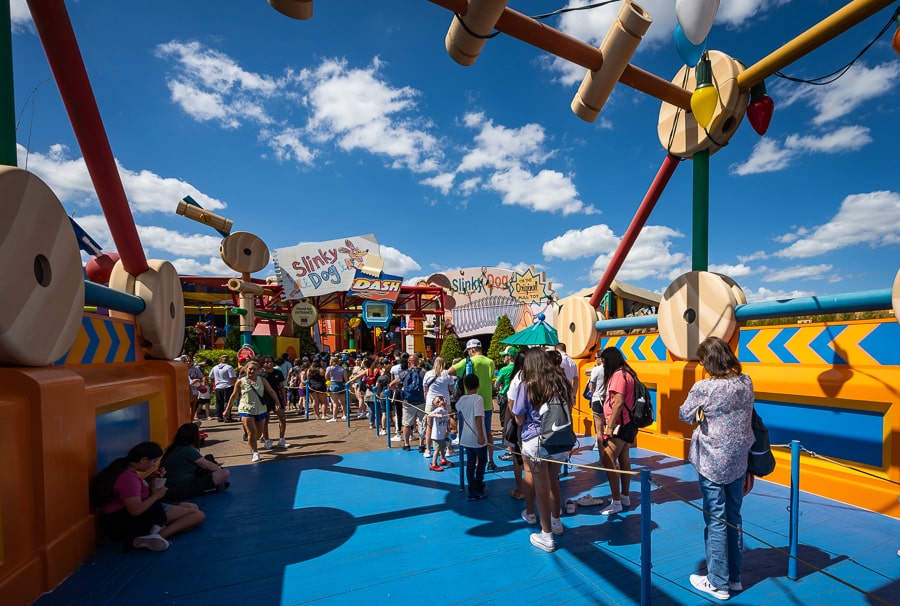



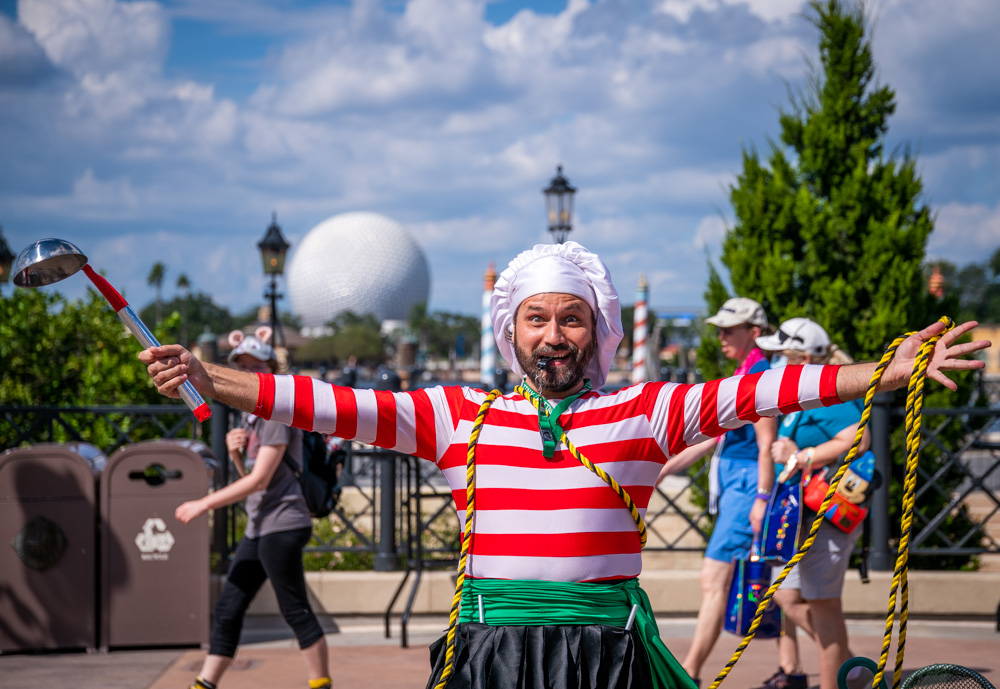
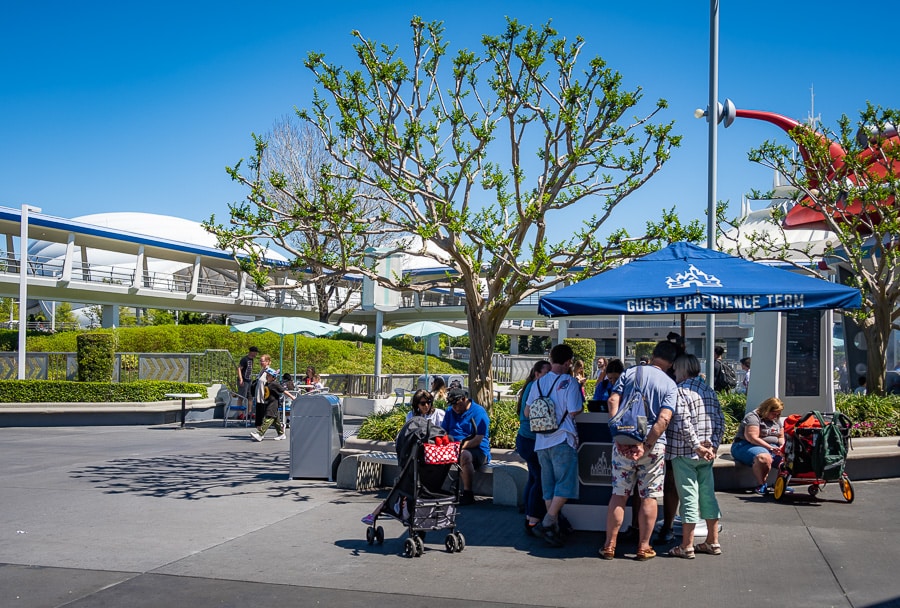
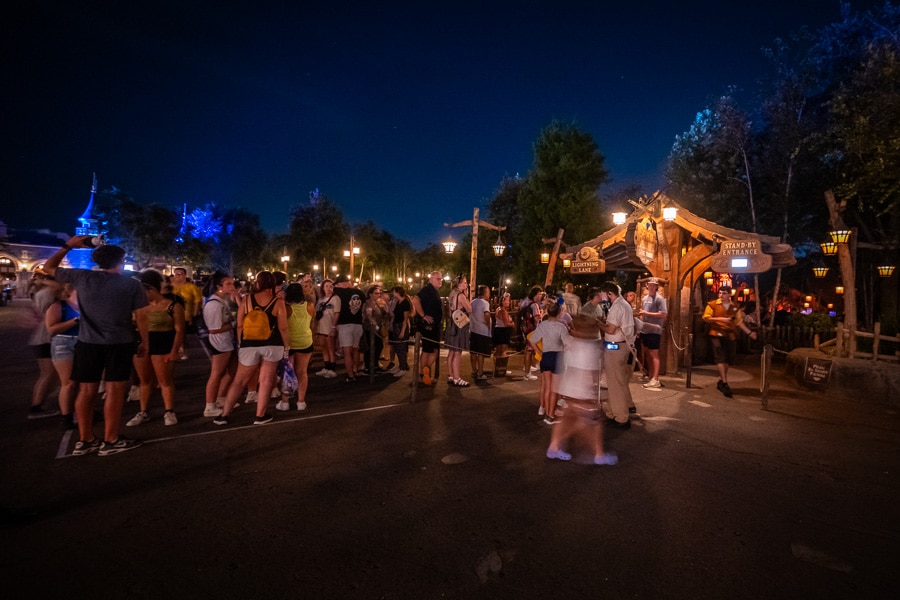
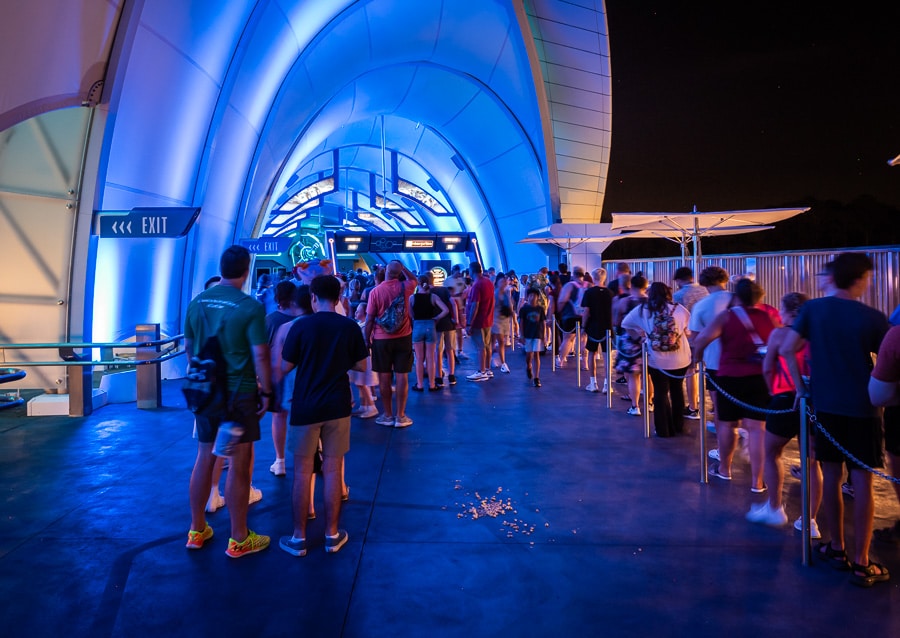
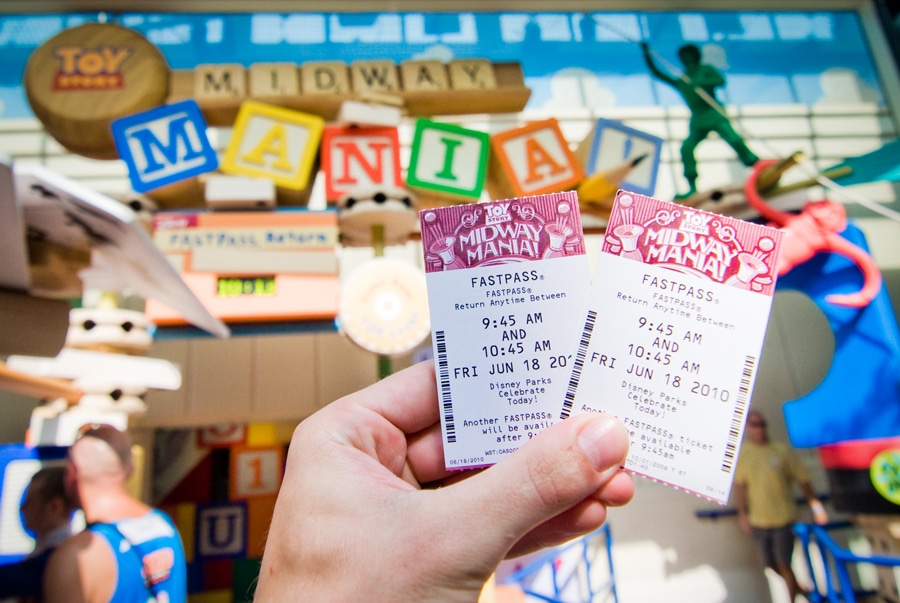
@Nichole… Wow! I would never imagine a person who has anxiety flying and has a prescription for meds would even get DAS. Not only that , how in the world would a DAS legit user run all over the park and do all these rides like you’re describing?
Sherri- these aren’t users for which, I believe, DAS is intended. As I said, in my made up examples, these are people who are intentionally or unintentionally abusing the system (people who qualify under the old rules due to actual medical issues, but don’t really need DAS to visit the parks or people who know the correct things to say during the virtual interview (it’s pretty well known there is guidance out there on the various social media outlets, in particular regarding IBS and anxiety, about what to say during the interview to be able to secure DAS). I read somewhere, maybe on here, 60% of LL is DAS. It’s pretty obvious, to me, if that many people are using the service, there is significant abuse going on. I will say, I personally know a group of people who have gotten DAS in the past using anxiety as the reason (who don’t actually have anxiety issues that arise at DW, but do have anxiety in other areas of life) who are visiting this summer, who will not be apply for DAS with the new changes. So I do think, for those that want to follow the rules, these new changes are going to make a difference. For those that could care less about rules or don’t care about their actions hurting others…the true cheaters, they will still find a way. Unless Disney actually starts weeding the true abusers out and punishing them, ie banning them from the parks, which I doubt will ever happen.
@nichole…yes I’m completely agreeing with you. A truly disabled person would never be able to run around the park as in your examples. I am surprised Disney would even give DAS to someone like you described. My husband and I bring our 37 yr old multiply handicapped daughter to Disney every year. We would be lucky to get 2-3 rides in. We also don’t stay at the parks long at all. We mostly enjoy the ambiance of the parks. It’s pathetic anyone would take advantage of this. Even with DAS our waits are long and therefore we don’t do too much of them. It’s sad that people work the system like you describe. Previously when they had the 3 free fast passes for everyone that was all we needed as we don’t do much in a given day.
the petitions have already started circulating, claiming disney is discriminating against the disabled. couldn’t be further from the truth- they are trying to help those who need it most by removing those scamming the system. i maintain, those screaming the loudest over this are those who have found a way to scam and are going to lose their cheating ways. anyone who legitimately needs this will have little to no problem following new rules. they may have questions certainly, but that isn’t the same as complaining.
I know of 2 families who both instructed my niece to say she has anxiety to use DAS because they didn’t require proof. It’s those people who do ruin it. However, reading all of the comments on social media these last few weeks, there a lot of people who used a diagnosis as a reason not to wait in line. Many of those were potential problems that may occur. While they are valid, they could occur regardless, whether you are in line for popcorn, sitting at a restaurant, etc. So I think allowing specific accommodations makes the most sense, as opposed to simply handing these out. If you have a genuine medical condition, they are still willing to help you out.
It isn’t my intent to sound heartless, but the comments saying “I can’t do crowds” sounds so silly since theme parks are some of the most crowded places to be.
Amy, perhaps this will help you understand. It’s not necessarily a crowd that is a problem, but a crowd that you can’t get out of when the need arises, such as a long standby line, especially when Cast Members say “fill in all available space” and you’re packed in like a can of sardines. I don’t do roller coasters, but there are plenty of other rides that have very long twisted lines. Been there, done that, in a wheelchair, with other (documented) medical needs that also flared up. I was ready to give up going to Disney until a Cast Member suggested that I would benefit from DAS. But unless someone truly needs DAS, and has benefited from it in the past, I’m sure it’s hard to understand why we are upset over the changes.
My family member has MS. They have qualified for DAS in the past. They do not need a wheelchair or scooter unless they are experiencing numbness in their extremities. The issue for them is a rise in body temperature – even small can bring on MS symptoms very quickly that could require iv steroids to reverse that must be administered as soon as possible and that we dont have quick access to. We try to go in colder months like our recent trip in January and head back to the resort for the hot part of the day or take breaks in air conditioning. Still DAS has helped them be able to do rides with long outdoor queues that they wouldn’t otherwise like Slinky Dog etc. with the changes it sounds like they will not qualify. Is that correct? I know no one knows for sure so please be kind. I’m just worried what our trips will look like in the future if they have to sit out and miss so much. Florida weather is unpredictable and you can expect a cool trip in January and then it is quite warm.
Hi Tom,
I haven’t noticed you mention this, but what is the difference between abusing DAS and buying Genie+/LL? Either way, you are cutting the line ahead of others even though you are able bodied enough to wait. Why is that Genie+ user allowed to get ahead of you? Because they can afford to bribe Disney, not because they have a disability. Even if all the DAS abusers turn from their evil ways and pay for Genie+ instead, the wait time will be just as long, wouldn’t it? The only difference is, Disney will get paid. Therefore, it is just as unethical to purchase Genie+/LL as to fake DAS. I am speaking as someone who purchases Genie+ but feels guilty about it. Just because I paid for it doesn’t mean it isn’t cheating. The fastpass was different, where everybody gets ahead sometimes and wait other times.
So what this means to me is, when cutting DAS down to developmental disabilities doesn’t work (people can just fake that), Disney will get rid of DAS altogether.
Alex
My husband has had 2 heart attacks. Although cleared by his cardiologists to go, he is limited on which rides he can do. He is unable to stand in long lines without getting extremely tired and also is on heavy diuretics. Needless to say bathrooms are needed very quickly when urges hit. Would he qualify for the DAS pass. We have 2 trips but the response may change our plans.
Hi Tom, My question is related to the part where it’s noted that DAS use through LL is higher then paid LL as well as standby lines wait longer then DAS lines . When the DAS person gets a return time based in the standby time is it different then the people in the standby line? Not only do DAS users have to wait the standby time they then go through the LL as well. It seems that DAs overall would be longer. Also I know that with our daughter we don’t go on a lot of the more popular rides as she is unable to tolerate them. So is it possible that DAS appear to get more rides in then standby due to utilizing less popular rides with shorter wait times? Curious as to your thoughts. I will also be impressed if you understand what I’m even trying to say lol!
Sherri, I think for the savy DAS user, the intentional and/or unwitting abusers, they are not requesting return times and then sitting out the wait in some air conditioned venue, as many believe. An example, a person has a prescription for anxiety meds due to extreme anxiety when flying, therefore, the thought process being “I have anxiety, I have a doctors note/prescription, I can get DAS.” Said person gets approved and then uses the system to their advantage. So say they request a return time for Minetrain, which is 40 min, they see Pooh has a wait time of 20 min, they hop on that….walk off that ride and see small world has a 15 min wait time, they go get in line for that as well. After that they tap into Mine Train and while in line they request a DAS for Jungle Cruise with a 50min return time, on their way over to that they see Pirates has a 30 minute stand by, they get in that line as well. The difference in this park goer is with Genie+ while you are waiting out these wait times for requested LL rides. The clock is continuing to move on other rides. There is no endless supply of “relative immediate” return times. They may tap into Minetrain, like the guest above, and go to request Jungle Cruise via genie+ LL and Jungle Cruise LL’s are sold out for the day, or the LL is for 5 hours into the future. These are all examples, that I’m envisioning, from what I’ve read and also from what I’ve experience going to the parks with a relative who has a mild disability. Again, these are examples of people who are intentional or accidental abusers who probably shouldn’t have been given the pass in the first place. You can see how a DAS user, who is savy, can keep hopping from ride to ride, as the return times are always available with DAS and usually immediate (relative to Genie+ in which the clock keeps moving forward based on how many people request LL). You can also see how these same users are clogging up lines all over the park, and probably making it hard for Disney to plan for the day and anticipate where they will be. This is all just my speculating, obviously.
I understand what you’re trying to say, and I think you’re looking at this from the perspective of a legitimate user of DAS who actually uses the system as it’s intended for disabled guests. It’s no surprise to me that you’d do fewer rides per day given everything.
But the abusers can use DAS to effectively be in two places at once (waiting in the virtual DAS queue while being in a real physical queue). That’s largely why Disney’s actual data shows DAS users doing more attractions per day.
The problem, as always, comes from the abusers and not the legitimate users of the system. The latter are not putting too much stress on it, at least not for the most part.
One thing to also remember is that Disney has guest files on everyone. They have a decent idea of the extent to which abuse is occurring.
Tom, thanks for this information. We wouldn’t be as productive with our Disney trips if it weren’t for your hard work keeping everyone posted . We appreciate all your efforts. Hoping your time at Disney is even more fun filled with baby Megatron!!!
The saddest thing I have read here are the ableist commenters who basically told every person with a disability,whether mental, physical or developmental, that if they are even mildly inconveniencing someone ablebodied, they should stay home and do nothing because theme parks, etc. are only for the physically perfect.
Wake the blazes up. That disabled person can be you if you are unkucky. You could develop diabetes and need to.hydrate more than a normal person, which means more bathroom breaks. You could end up.Parkinson’s or MS and need a,wheelchair. You could be old like me and limited by congenital duplicating ankles which can turn easily especially if I have to.a,lot of walking and standing–oh and born with a scoliosis, so chronic pain. I am doing g PT, but these issues are congenital so even with PT, they will act up as they did last night.
Or you could just follow the Golden Rule and do unto others as you would have them do to.you. Because one of these days, UT will be YOU inconveniencing a,stranger.
I am in fb disney das groups and people are already changing their personal issues and looking to get around the changes coming. I will give you a few examples of posts I have personally seen: I have seen people post that they have gotten das in the past not for their mobility need (wheelchair user) but because of their additional ibs diagnosis but now say they also have autism but never applied under that diagnosis before because they just applied under their IBS. You can see how the abuse has manifested throughout time: legit wheelchair user used to get front of line access but when they made queues accessible and mobility issues no longer qualified for das they developed “ibs” too, now that bathroom issues will not qualify for das they casually mention they have autism too. Another person posted how they have always used das for their son with autism and had party of 6 on their das, but now that the limit will be 4 their 82 year old grandpa will apply and should qualify because he has a developmental disability (her exact words) of adhd/anxiety and if he doesn’t qualify they have another kid who they could apply for… Seriously, 82 year old grandpa has adhd which she says qualifies him as having a developmental disability. People are justifying having more people apply to skirt the new das party limits. I truly hope Disney has cm’s in these groups to be the eye and ears. The changes haven’t even gone into effect and already people are scamming the system.
@kari, I don’t use social media so what your saying is stuff I don’t see. That’s all wild that people go to such great lengths to be disabled. DAS isn’t even that great of a thing to have. You still have longer times waiting. I don’t understand why people think it’s so great
I have been to the parks with my nephew who has mild ADHD. DAS is a game changer in terms of being able to accomplish more in less time. Now, I’m speaking of a groups whose DAS holder has a MILD disability. There was no need for our group to wake up at 7am to do the mad dash to secure genie+ and start booking LL. There is no need to pay for ILL as those rides are included with DAS. There is no limitations on how many times you can ride a ride (genie+ allows only 1 LL request per ride), and yes, you can actually ride other rides via standby while waiting on DAS return time and also DAS doesn’t run out of ride requests (where as Genie+ can run out of LL). So, to those, who think DAS users are not accomplishing more than Genie+ users or don’t have a different experience, it’s just not true. Again, my experience was when visiting with a DAS holder who had a mild disability. I’m not saying ALL DAS users have this same experience. I’ve been to the parks using both. Genie+ is a stressful way to plan and enjoy a vacation (and people are paying for this service), DAS, as a way to request rides, etc, is the opposite. My hunch, again, MY hunch, if 60% of the LL taps are DAS holders, is that a lot of those ppl are ppl with disabilities that qualify (ie anxiety, etc) yet don’t necessarily NEED DAS to actually be able to do the parks. However, they are saying, I qualify, therefore I’ll get it, I’m not breaking any rules, and so on. Unfortunately, the parks have gotten more convoluted for everyone since Genie+ was introduced and it takes a lot of planning and researching to “get your moneys” worth. However, there are still ways to do the parks without needing DAS and enjoying walk on rides, it just takes more work and yes, more money (this is Disney) (some examples: arriving late to a park and spending the morning requesting LL so your afternoon/evening is “stacked”, staying deluxe and taking advantage of extended evening hours and forgoing a day ticket and doing after hours instead). It seems the new return to line feature is long over due (let’s remember people peeing in line when FOP opened as they were afraid to get out of the 4 hours wait) and will definitely help cut down on DAS passes given to those individuals that “may” have a situation while in line (IBS, anxiety, etc).